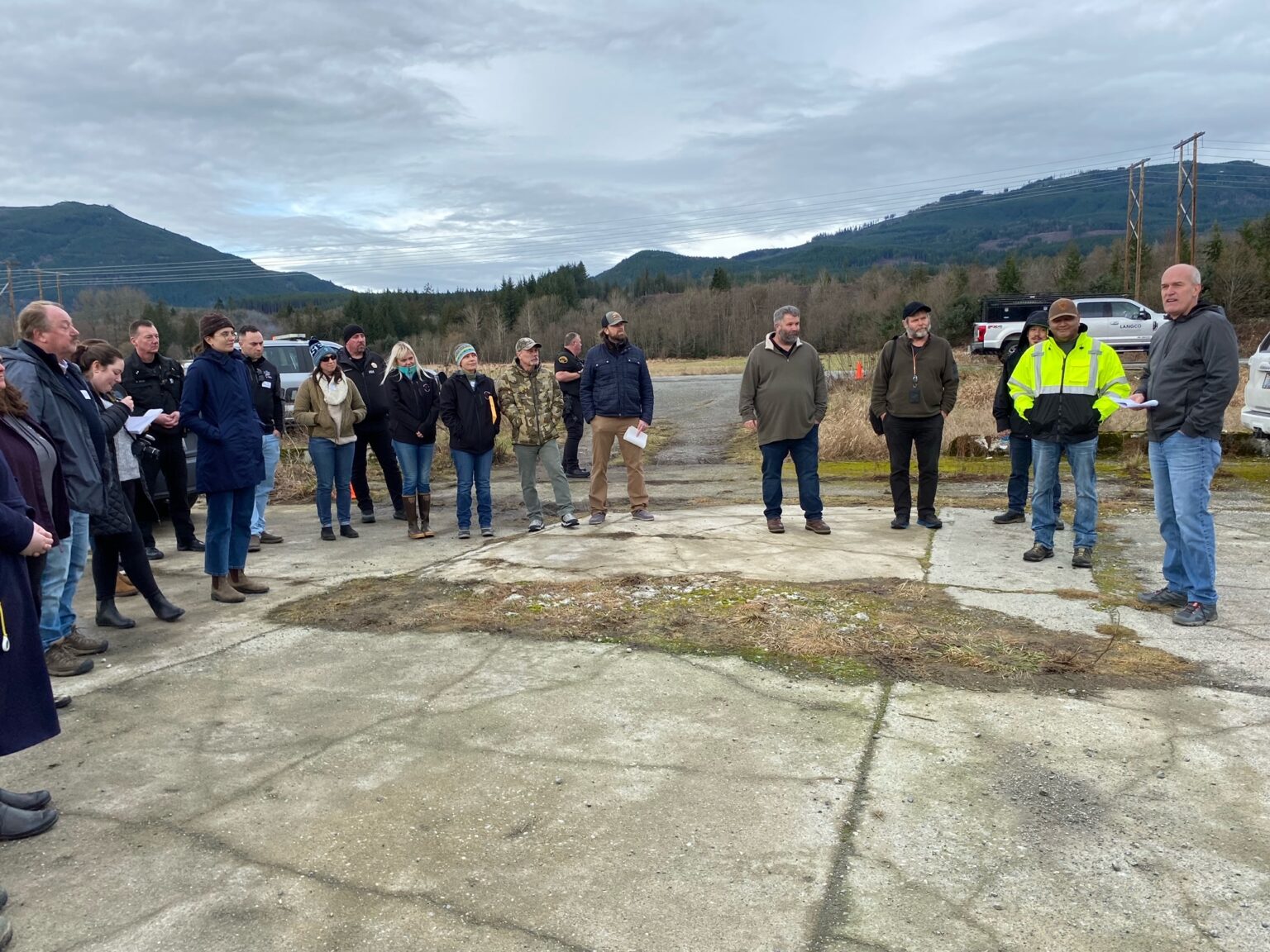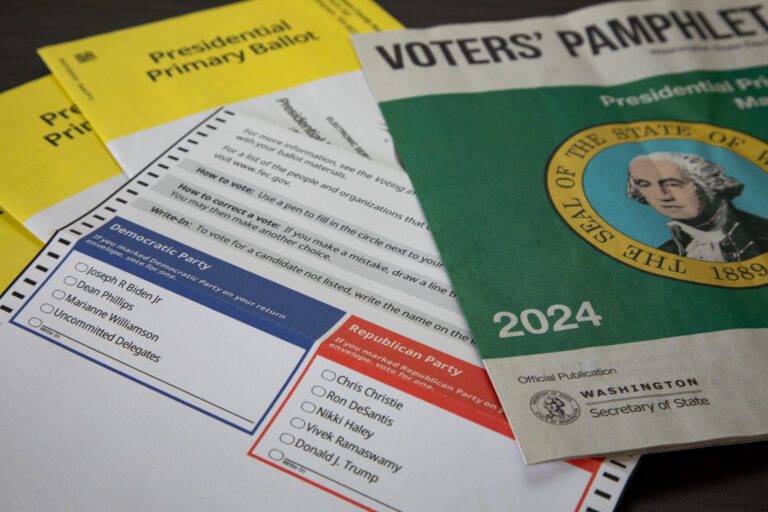More than $8 million has been tagged for the Red Cabin Creek Wildlife Overpass Project slated to protect drivers and elk along Highway 20 in Skagit County.
The construction of the overpass will connect wildlife habitats divided by the road, protect treaty resources and reduce animal-vehicle collisions.
“Elk, deer and other wildlife species are important treaty resources to the tribes,” said Jennifer Sevigny, a wildlife program manager with the Stillaguamish Tribe. “The amount of wildlife-vehicle collisions that occur do have an impact on the sustainability of the population.”
The Federal Highway Administration awarded the Stillaguamish Tribe an $8,495,000 Bipartisan Infrastructure Law grant through the Wildlife Crossings Pilot Program for the project in December 2023. Stillaguamish was one of four tribes included in $110 million in grants for 19 wildlife crossings projects in 17 states. The project is expected to take up to four years to be completed.
Previous wildlife crossing projects in the state have ranged from about $250,000 to more than $6 million, but the Red Cabin Creek structure will be Washington’s first stand-alone wildlife overpass and is coming at a time of significant inflation.
While the project price tag might seem hefty at first glance, Sevigny noted that it pencils out when taking into account the societal costs of elk-vehicle collisions.
There are millions of wildlife-vehicle collisions in the nation every year, and those involving large animals result in an estimated 200 human fatalities and 26,000 injuries, according to the U.S. Department of Transportation.
In addition to the loss of life, it’s estimated that these collisions cost the public more than $10 billion annually, including property damage, medical costs and loss of income, among others.
The Washington State Department of Transportation estimates there are a minimum of 5,000 deer-vehicle collisions and 200 elk-vehicle collisions in the state annually, based on carcass removal data.
In Skagit, resident elk herds are dependent on the high-quality riparian habitat in the valley, explained Amanda Summers, a wildlife biologist with the Stillaguamish Tribe.
“We have resident herds that actually live on the highway,” Summers said. “I mean, literally on either side of it.”
Highways and other man-made structures can divide habitat, which is particularly problematic for animals that migrate or have a large home range. Wildlife crossings like the Red Cabin Creek Wildlife Overpass provide the habitat connectivity.
Stillaguamish Tribe, which has been actively involved in managing elk in Skagit for years, used GPS collar data from the animals to analyze crossings, relating that data with carcass removals and reports of elk-vehicle collisions to determine the best locations for the overpass.
“Our collar data really helped us to pinpoint exactly where the elk are crossing, and so we were able to identify different hotspots on Highway 20,” Sevigny said.
Movement on the project won’t begin until the tribe receives the awarded funds. At that point, they will have four years to design, permit and build the structure, confirmed Sevigny.
Located between the Upper Skagit Tribe villages of Lyman and Hamilton, the Red Cabin Creek Wildlife Overpass will have the most direct impact on that tribe.
“We receive the funding, but we’re going to be working really closely with the Upper Skagit Tribe. They’re a primary partner in this grant,” Sevigny said.
The Upper Skagit Tribe has been heavily involved with wildlife management in Skagit County for decades, including the development of the North Cascades Elk Herd Management plan and various efforts to address elk-vehicle collisions in the county, explained Scott Schuyler, a member of the Upper Skagit Tribe and its policy representative.
The Upper Skagit Tribe will play a vital role in the process, providing historical and cultural data, which is particularly important as the selected site has tribal cemeteries close to it, said Schuyler.
“We’re very thankful that there’s wildlife still in this valley, and that’s always going to be our goal,” Schuyler said.
Sevigny said the grant looked at other factors outside of habitat connectivity and the potential to decrease collisions – asking applicants to factor in job creation and local sourcing of materials, among others.
“There’s no doubt that it will [create jobs],” Sevigny said.
Bipartisan Infrastructure Law funding has invested $7.9 billion in Washington state, with more than 490 specific projects identified.
“Thanks to the Bipartisan Infrastructure Law, the Stillaguamish Tribe has the funding it needs to design and construct a wildlife overpass to improve safety for motorists and wildlife, including elk, on rural state Route 20,” said U.S. Representative Rick Larsen, who serves as the lead Democrat on the Transportation and Infrastructure Committee.
The Upper Skagit Tribe was “very grateful” to Larsen for facilitating the funding of the project, Schuyler said.
“Ultimately, it should be a good thing for the elk and for car safety,” he said.
Isaac Stone Simonelli is CDN’s enterprise/investigations reporter; reach him at isaacsimonelli@cascadiadaily.com; 360-922-3090 ext. 127.




